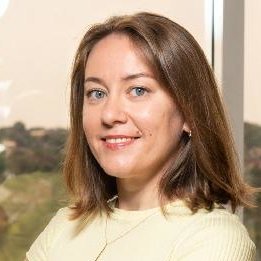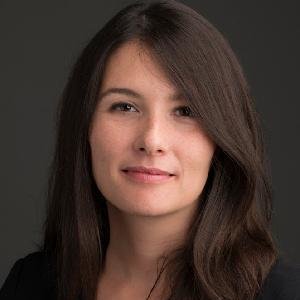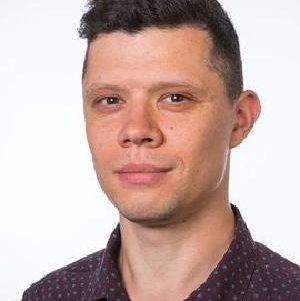TU Delft AI Lunch – Inclusive AI: Caring with and for AI
11 december 2024 12:00 t/m 13:30 - Locatie: Mondai House of AI (@NEXT Delft, Molengraaffsingel 8) | Zet in mijn agenda
What does it mean to realize care as a design requirement in the deployment of robots, and more generally in human-machine interactions? And more broadly, what is required to propel a care-based vision within the design of AI systems? Care can be understood as an ethical framework for responsible technology development, as well as for engineering education. In practice, it translates to embracing the principles of interrelation, co-dependence, diversity, and inclusion – combining social, technological, and institutional levels of AI development. But how exactly does this translate into engineering and design practice?
Join us for an interactive discussion to explore what it means to care with, and for, AI, and to kick-off the new series on Inclusive AI!
Programme
12.00 – 12.30 Walk-in and Lunch
12.30 – 13.30 Panel Discussion on Inclusive AI with Olya Kudina (TPM), Nazli Cila (IDE), Laura Marchal-Crespo (ME),
Sara Colombo (IDE) and Arkady Zgonnikov (ME)
Panellists

Olya Kudina
Olya Kudina
Assistant Professor of Ethics & Philosophy of Technology (Faculty of Technology, Policy & Management)
Olya is an interdisciplinary researcher in philosophy/ethics of technology who explores the relation between human values and technologies. Her recent focus has been on AI and democracy in the framework of the AI DeMoS Lab that she founded and co-leads. To anticipate the ethical challenges and opportunities of technologies, Olya thinks it is essential to combine different academic practices and fields.

Nazli Cila
Nazli Cila
Assistant Professor of Human-Agent Partnerships (Faculty of Industrial Design Engineering)
Nazli's work combines interaction design with humanities, integrating empirical work (i.e., experimentation, future modelling, and prototyping) with practical and ethical issues surrounding collaborations with agents. Nazli is co-director of the AI DeMoS Lab.
Laura Marchal-Crespo
Associate Professor, Faculty of Mechanical Engineering
Laura is also affiliated with the ARTORG Center for Biomedical Engineering Research, University of Bern. Laura carries out research in the general areas of human-machine interfaces and biological learning, and, specifically, in the use of robotic assistance and virtual reality to aid people in learning motor tasks and rehabilitate after neurologic injuries.
Sara Colombo
Assistant Professor, Faculty of Industrial Design Engineering
Sara's research explores innovative approaches for the ethical design of AI applications and the critical examination of their societal impact. Her work involves engaging communities in envisioning AI futures with an emphasis on inclusivity and a participatory approach.Sara is co-director of the newly launched Feminist Generative AI Lab.
Arkady Zgonnikov
Associate Professor in Human-Robot Interaction at the Department of Cognitive Robotics, Faculty of Mechanical Engineering
Arkady works in collaboration with researchers in robotics and AI to incorporate these cognitive models into the design of robots and automated driving systems. He believes that theories and models from cognitive psychology and neuroscience will help us to develop autonomous systems that are responsive to human reasons and intentions. The overarching goal of his work is to find ways to develop artificial systems that are highly autonomous but at the same time remain under meaningful human control.
About the series Inclusive AI
Inclusivity can be understood as a desirable quality of AI systems, encompassing a broad range of pressing societal and technical challenges for the responsible development and deployment of AI systems. It manifests in machine learning through concerns related to fairness, bias, and trustworthiness; societal issues currently underrepresented in discourse (e.g., feminism, neurodiversity, disability studies, care ethics, intersectionality, more-than-human perspectives); and, in engineering and robotics application domains such as healthcare, mobility, urban AI, and the future of work. This new series aims to bring together a growing research community on campus to exploring these topics and foster an interdisciplinary exchange.
This lunch will be the first in a series of three panel discussions on Inclusive AI throughout 2024-25. Stay tuned for details on the second lunch in spring 2025.
About the Delft AI (Lab) Lunch series
This series is part of the monthly Delft AI (Lab) Lunches, a recurring meet-up hosted by the TU Delft AI Labs & Talent community at Mondai | House of AI.
Every month, we host a panel to discuss challenges and developments made at the intersection of AI and a specific field. During these events, you can participate, learn, make connections, inspire and be inspired by and with the Delft AI Community. We invite all interested staff and students from TU Delft to join these sessions. Please contact community manager Charlotte Boelens for more information about this series or the TU Delft AI Labs & Talent Programme.
Note for TU Delft PhDs
The TU Delft AI Lunch series is eligible for earning discipline related skills GSC with the ‘Form for earning GSC for TU Delft AI(-related) seminars’. Check with your local Faculty Graduate School (FGS) if your FGS offers this option for earning Discipline Related Skills GSC; and with your supervisors if they accept our seminars on your Doctoral Education (DE) list. If you already have a form, don’t forget to bring it with you.


